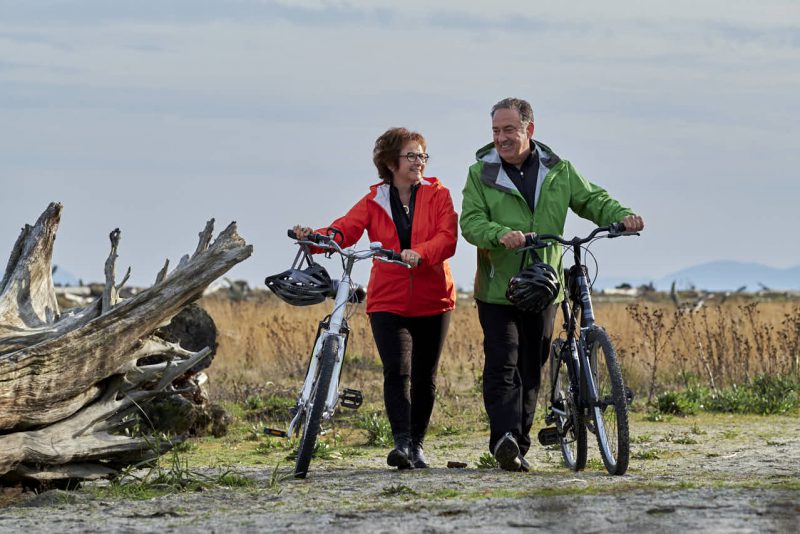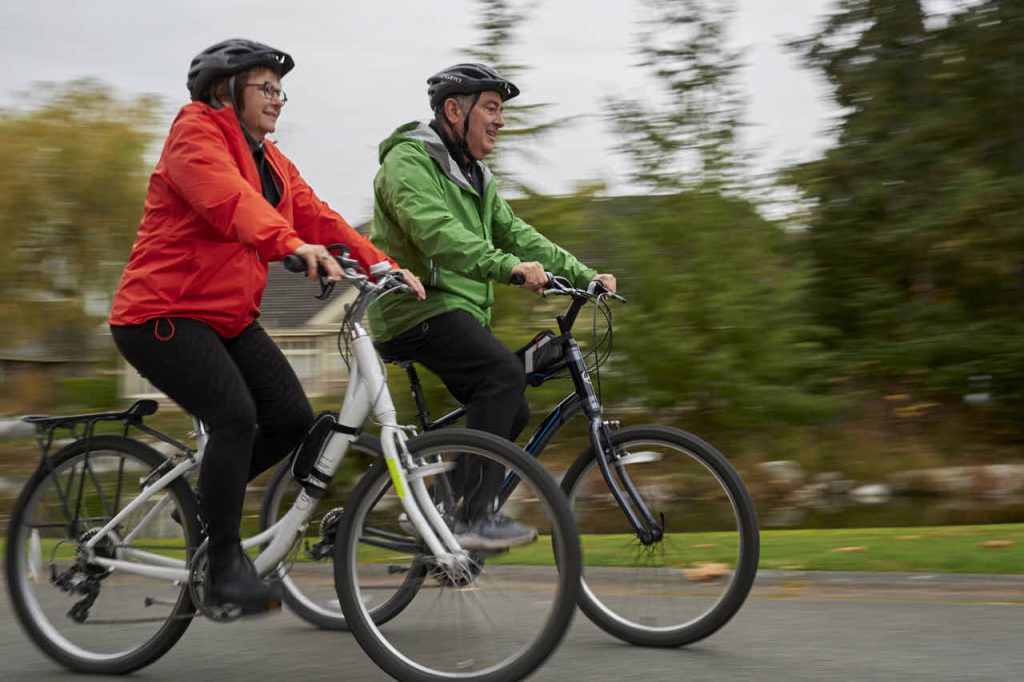
“I thought he was teasing me because of the conversation we had just had,” recalls Carol. “I called to him, and he didn’t move. So then I screamed at him, and I screamed again as I’m racing up the hill to catch up to him.”
As she arrived, John was having a seizure. Carol, who had taken some resuscitation classes in the past, initiated CPR. Soon, a passerby, who happened to be a former firefighter, took over the work as John turned blue. He was having a cardiac arrest.
“Immediate CPR is a critical way to help someone survive,” notes Royal Columbian Hospital interventional cardiologist Dr. Albert Chan. “If the brain does not receive oxygen and blood just for even a few minutes, there is a significant amount of brain tissue damage.”
Firefighters and paramedics arrived, and John was intubated and defibrillated. His pulse returned, and John was brought to the nearby local hospital for assessment. Soon he was headed with lights and sirens to Royal Columbian Hospital’s cardiac catheterization lab.
Carol and John Harrison, three and a half months after John suffered a cardiac arrest while on his bicycle.
“An angiogram showed he had a very tight narrowing in the proximal segment of the left anterior descending artery,” explains Dr. Chan. “Immediately, at the time of the angiogram, we proceeded with an emergency angioplasty to open up the artery.”
Dr. Chan placed two stents, and John was sent to the Intensive Care Unit to recover. He remained unconscious, and there were still questions about how much lasting damage he suffered during the cardiac arrest.
Over the next couple of days, when the family wasn’t visiting in hospital, they were getting updates by phone. It was during one of those calls they heard good news.
“I was on the phone with the nurse, and he’s like ‘I gotta go, he’s moving,’ recalls daughter Emily.
“It was an absolute miracle,” adds Carol. “We raced here.”
John’s care during his time in hospital left a strong impression on the family. “They were amazing,” says Carol. “There was no question too small for them to answer. We could be in there for as long as we wanted and talk to them until we were satisfied.”
Now a couple of months later, John recognizes how fortunate he is to have survived.
“They have all told me that,” he says. “I feel good, really good. I’ve lost some weight. I am eating better. I am starting cardiac rehab. Things just kind of all fell into place for me.”

